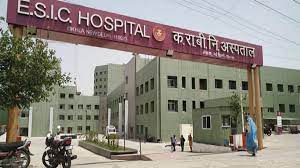
In the realm of employee welfare, the Employee State Insurance Corporation (ESIC) plays a pivotal role in providing healthcare benefits to workers across various sectors. One of the significant aspects of ESIC’s healthcare provision is its tie-up with a network of hospitals across the country. These tie-up hospitals serve as crucial pillars in ensuring accessible and quality healthcare for ESIC beneficiaries. Let’s delve into the importance of this tie-up hospital network and its impact on employees:
- Expanded Healthcare Reach: The tie-up hospital network significantly expands the reach of healthcare services for ESIC beneficiaries. By collaborating with numerous hospitals, ESIC ensures that employees and their dependents have access to medical facilities within their vicinity. This expansive reach is particularly beneficial for employees residing in remote or underserved areas, where healthcare infrastructure may be limited.
- Diverse Medical Specialties: ESIC tie-up hospitals typically offer a wide range of medical specialties and services. From primary care and preventive services to specialized treatments and surgeries, these hospitals cater to diverse healthcare needs. This ensures that employees receive comprehensive medical attention, encompassing various health conditions and ailments.
- Quality Healthcare Standards: ESIC maintains stringent quality standards for its tie-up hospitals. Before partnering with healthcare institutions, ESIC verifies the quality of infrastructure, medical equipment, and the expertise of healthcare professionals. This emphasis on quality assurance ensures that beneficiaries receive standardized and reliable healthcare services across all tie-up hospitals.
- Cashless Treatment Facilities: One of the key benefits of the ESIC tie-up hospital network is the provision of cashless treatment facilities. ESIC beneficiaries can avail themselves of medical services without the hassle of upfront payments or reimbursement procedures. This cashless treatment system enhances convenience and eliminates financial barriers to accessing healthcare, thereby promoting timely medical interventions.
- Cost-Effective Healthcare: ESIC tie-up hospitals often offer healthcare services at subsidized rates for beneficiaries. This cost-effective healthcare model alleviates the financial burden on employees and their families, especially during medical emergencies or prolonged treatments. By making healthcare more affordable, ESIC contributes to enhancing the overall well-being and financial stability of workers.
- Continuity of Care: The tie-up hospital network facilitates continuity of care for ESIC beneficiaries. In cases where specialized treatments or follow-up care is required, employees can seamlessly transition between ESIC tie-up hospitals without disruptions in their medical care. This continuity of care is essential for managing chronic conditions, ensuring optimal recovery from illnesses, and promoting overall health maintenance.
In conclusion, the ESIC tie-up hospital network plays a vital role in ensuring healthcare access and affordability for employees covered under the ESIC scheme. By collaborating with a diverse network of hospitals and upholding stringent quality standards, ESIC effectively fulfills its mandate of safeguarding the health and well-being of workers and their families. This concerted effort towards providing comprehensive and accessible healthcare underscores the importance of ESIC’s role in the broader landscape of social welfare and healthcare provision.



